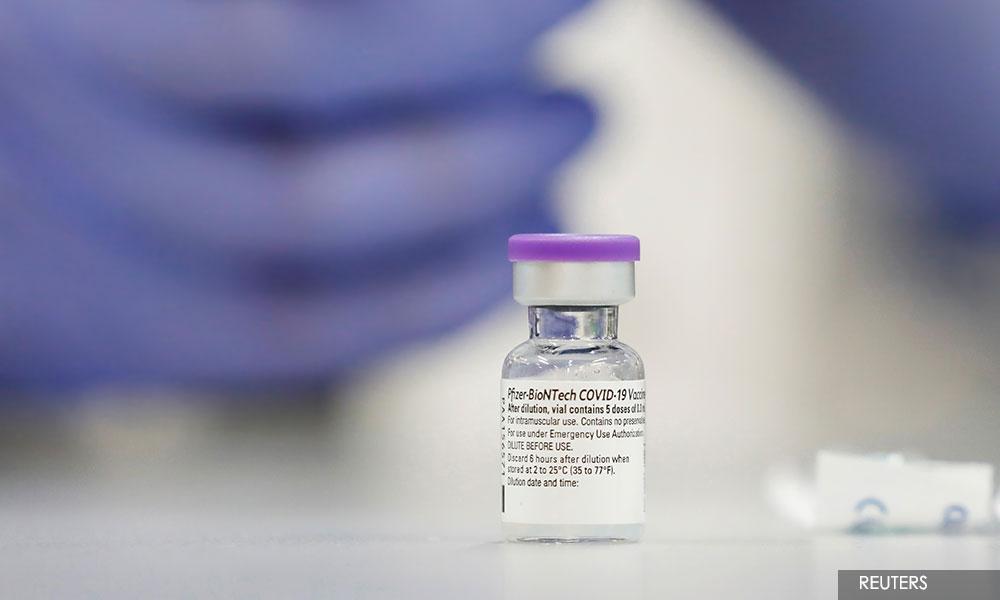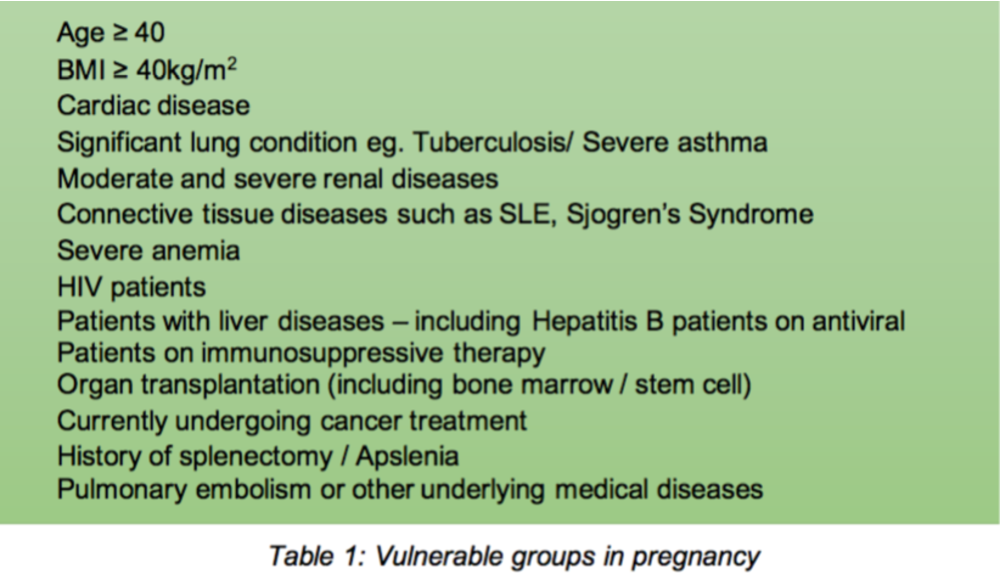According to the Health Ministry’s most recent Covid-19 vaccination guideline, pregnant and breastfeeding women are not advised to take the Sinovac or AstraZeneca vaccines.
Sinovac was found to have contraindications (a sign that a vaccine should be discontinued due to the potential for harmful effects) for such women.
“According to the product information of CoronaVac (at the time of review), it is not recommended for pregnant or breastfeeding women,” the guideline stated.
It did not elaborate on what the vaccine’s side effects would be if taken by pregnant or breastfeeding women.
The information was sourced from a training module by Pharmaniaga’s corporate communications department. The government-linked company had been tasked with bottling the vaccine.

For AstraZeneca, which is presently being administered on a voluntary “first come, first serve” basis in the Klang Valley, the ministry does not recommend it for pregnant women due to contraindications.
The ministry similarly does not recommend it for breastfeeding women due to a lack of data.
It noted that the reason for the advice was not due to blood clot risks.
"There is no evidence that pregnant women, postpartum women or women on contraceptives are at higher risk of the specific condition of thrombosis (blood clot) in combination with thrombocytopaenia after the AstraZeneca vaccine.
"There have been no confirmed cases reported in pregnant women to date," it said.
As for the Pfizer-BioNTech vaccine, the guideline did not note any contraindications for pregnant and breastfeeding women.
However, it advised both groups to first discuss the matter with their healthcare provider and consider their risk exposure and risk of suffering from severe Covid-19 before vaccination.
The "Clinical guidelines on Covid-19 Vaccination in Malaysia" document which covered the Sinovac and Pfizer-BioNTech vaccines was published on April 13, 2021.
The ministry published its clinical guideline for AstraZeneca separately on May 3.
Yesterday, Bakri MP Yeo Bee Yin urged Putrajaya to gather data on how different Covid-19 vaccines affect pregnant women.

The former minister also proposed better communication of the government’s recommendations to these women. She suggested making it compulsory for all obstetricians and gynaecologists to inform their patients of these recommendations.
Vaccinate after first trimester
The Health Ministry's guideline elaborated that pregnant women should take the vaccine as available data suggests it is safe. Such women were found more likely to be admitted to the intensive care unit (ICU) if they contract Covid-19.
“Severe illness appears to be more common in the second and third trimester,” it read.
The ministry said recent data indicated that mRNA-based vaccines were safe for both mother and fetus.
“Both Pfizer-BioNTech and Moderna are mRNA-based vaccines which build spike proteins, mimicking the surface protein of SARS-CoV-2 to trigger an immune response.
“These vaccines do not contain live SARS-CoV-2 and hence is not infective to the pregnant mother and her fetus,” it said.

Among the ministry’s recommendations and findings for pregnant and lactating women are:
- Pregnant frontline workers should receive priority vaccination due to risk of repeated Covid-19 exposure.
- Pregnant women who opt for vaccination should receive the first dose between 14 to 33 weeks of gestation. It cautions against receiving the first dose during the first trimester as this might not protect women towards the end of the pregnancy. This is also when the risk of complications like miscarriage is highest.
- Covid-19 vaccines should not be administered within 14 days of receiving another vaccine.
- Cessation of breastfeeding is not recommended in lactating women. There is little biological plausibility for the vaccine to be transferred to breast milk. However, one possible benefit is antibodies triggered by the vaccine may transfer into the milk and protect infants from Covid-19.
- Vaccinated women are unlikely to suffer a loss of fertility.
- Consider postponing the start of assisted reproduction treatments for up to two months after completing vaccination.
- For pregnant women who had Covid-19, vaccination is recommended after puerperium (when reproductive organs return to their non-pregnant condition) and six months or more post-infection.
Vaccinate before pregnancy
As part of pre-pregnancy care, the ministry advised women with “identifiable risk factors” to complete their Covid-19 vaccination before embarking on a pregnancy.
Identifiable risk factors include being 40 years old and above, having cardiac disease, significant lung conditions, renal diseases, liver diseases, severe anaemia, and being HIV positive.
A full list of the factors are:

The full Covid-19 vaccination guideline has recommendations for many other people groups and conditions.
- Mkini




No comments:
Post a Comment
Note: Only a member of this blog may post a comment.